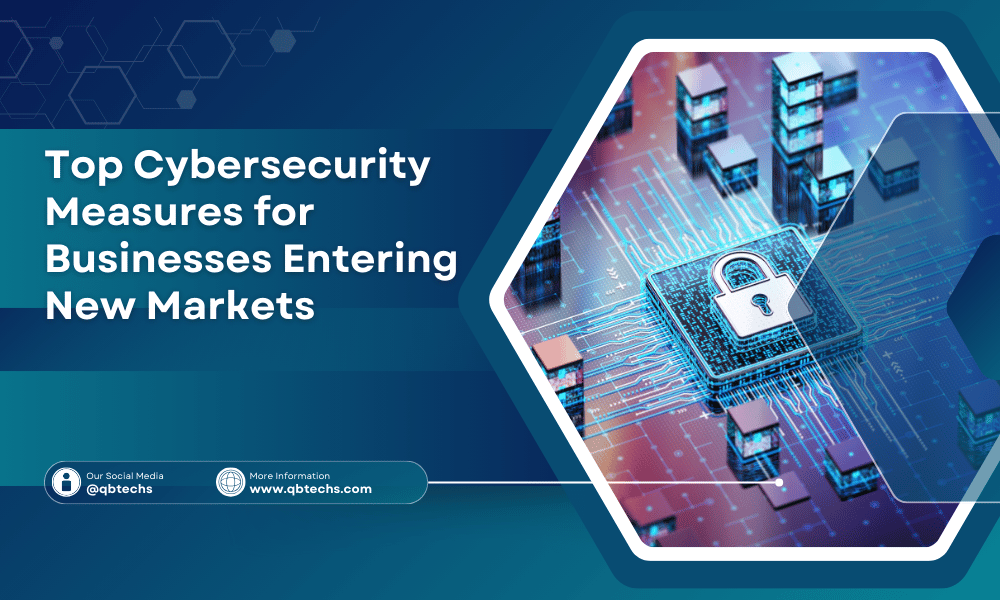Whether you are just starting or have already been growing your business for years, you probably have a clear understanding of cybersecurity. Let’s say your team has established a cybersecurity policy, and it’s going great. But what if you decide to expand to a new market?
With different law regulations, new employees, and unknown cyberthreats, your current knowledge of cybersecurity might not be enough. As a result, this can quickly become overwhelming and difficult to manage.
This is exactly why protecting your assets and understanding regional laws and risks is necessary. Fortunately, there are cybersecurity measures you can take to establish a pretty great defense against cyberthreats. Here’s a list of them.
Conduct Risk Assessment
To prepare for entering the new market, you should first conduct a risk assessment related to the local market. This process will help you uncover and understand potential threats and vulnerabilities you should be aware of.
Start by registering all of your company’s critical assets, including hardware, software, networks, online and offline data, and infrastructure, that will be present in the new market. This will give a solid understanding of what exactly needs protection from potential threats.
Once that’s done, get in touch with local cybersecurity specialists who understand the country’s cyber landscape. They can inform you about local hacking groups, the most prevalent strains of malware, marketing and phishing message programmers, etc.
Understanding these measures and strategies will help your business respond effectively by adjusting cybersecurity efforts. It will also allow you to identify areas where competitors may be vulnerable.
Connect With Local Law Experts
Cybersecurity law requirements vary by market, with each country having its own rules and protocols. For example, the European Union’s GDPR has strict guidelines on personal data, while China’s cybersecurity laws differ significantly. Understanding these differences is crucial before expanding into a new market.
Working with local law experts who understand regional online privacy and cybersecurity laws can help you comply with regulations and avoid costly penalties or market bans.
Don’t Forget About Your Security
Many people recommend traveling to your target country when expanding your business. However, only a few emphasize the importance of securing your online privacy during those trips.
Traveling to new places means you should always prioritize securing your connection when accessing sensitive data. Public Wi-Fi can expose your business to risks, so it’s better to rely on secure alternatives. An eSIM provides a much safer internet connection, reducing the risk of data breaches or leaks.
If you’re looking for a reliable eSIM plan, online forums like Reddit can be helpful. Threads such as Best eSIM for Saudi Arabia often provide real-world experiences and recommendations from other travelers.
Adopting Cybersecurity Tools
When expanding your business to another country, you shouldn’t expect the local infrastructure to naturally have the same cybersecurity tools and software you’re familiar with. That’s why it’s recommended that you research and adapt your strategy to the new landscape.
Nonetheless, there are some cybersecurity tools you should always adopt in your business. Some tools can even be implemented as browser extensions in your team’s daily routine, with Opera password manager being one of them. These password managers can safeguard employees’ login data and sensitive information whenever accessing work-related websites or internal systems.
Other tools can also be a great helping hand in protecting your business from cyberthreats, including:
- antivirus;
- next-generation firewall (NGFW);
- VPN;
- Domain Name System (DNS) protection;
- Endpoint Detection and Response (EDR);
- cloud-based security software;
- Privileged Access Management (PAM);
- multi-factor authentication.
Train Your Team
While the local landscape might influence how your employees perceive cybersecurity, you should still train them on how your business approaches it. This will ensure clear communication about your company’s cybersecurity practices, regardless of regional differences.
When you first conduct training, let the team know how your whole business treats cybersecurity and online risks. If you don’t have an official policy yet, create one as soon as you can. Then, share it with your team and have it signed by every new employee entering your business.
After discussing the official policy, don’t forget that cyberthreats and attacks are constantly evolving, with new ones continually emerging. Because of this, it’s important to regularly update your team on any changes in the cybersecurity landscape. Be sure to explain how following the policy helps protect business assets. Additionally, conduct tests to ensure employees are adhering to the rules. In case of a cyberattack, make sure they are familiar with the data breach protocol to follow.
Steer Clear of CyberThreats in a New Market
Expanding your business is an incredible chance that comes with new opportunities. Yet, you will also face unique challenges in a new market, including cyberthreats. To protect your business, assess potential risks, conduct cybersecurity training for employees, connect with local experts, and adopt high-quality cybersecurity tools. Only this way will you ensure your business avoids unnecessary problems.




Leave A Comment
You must be logged in to post a comment.